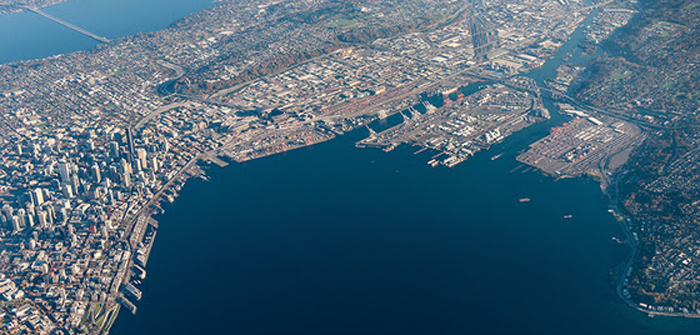The Port of Seattle Commission has approved its 2019 budget and 2019 to 2023 capital investment plan that will see the Port invest US$348m (£276m) to maximize the economic and environmental vitality of Seattle’s aviation and maritime industries.
The 2019 budget continues major investments in facilities and customer service at Seattle-Tacoma International Airport, as well as investments in the maritime and economic development divisions. These initiatives are aimed at improving regional productivity, efficiency, community and environmental health, regional transportation, customer service and security, and long-term financial sustainability to fund future investment in the region.
“Our aviation and maritime industries are among this region’s most recognizable and reliable sources of opportunity,” said Port of Seattle Commission president Courtney Gregoire. “This budget and five-year blueprint advances our region’s status as a premier global gateway and makes transformative infrastructure and environmental investments to attract future opportunities consistent with our region’s values.”
The Port’s 2019 budget will see it spend 51% of its US$1.94bn (£1.54bn) funds on capital expenditures and 23% of its budget on operating expenses. The 2019 budget includes US$935m (£742m) in major capital development programs at the airport, such as the new North Satellite, International Arrivals facility, and high-speed baggage program.
In addition to approving the budget, Commissioners also directed the Port to fund three specific priorities: South King County Support Program, Sustainable Aviation Fuels and Air Emissions Program, and Additional Workforce Development Program.
The South King County Support Program fund will provide support for Sea-Tac Airport area communities. The 2019 to 2023 budget blueprint allows up to US$10m (£8m) for the South King County Support Program, with US$750,000 (£595,000) budgeted in 2019. The Commission will rely on public engagement before determining a policy directive on uses, guidelines and timelines for the expenditures.
“Sea-Tac Airport’s continued strong growth supports a robust regional economy and the thousands of jobs that depend on the airport. Our commitment is to airport growth that is well-managed, environmentally responsible and respects our neighboring communities,” said Commissioner Peter Steinbrueck. “The Commission will dedicate more resources to build on our longstanding efforts to address airport noise and other projects that support environmental health and enhance sustainability.”
The Sustainable Aviation Fuels and Air Emissions Program fund will be used to address the development of sustainable aviation fuels at Sea-Tac and other efforts to reduce Seattle’s greenhouse gas emissions. The 2019 to 2023 budget blueprint provides up to US$5m (£4m) for the fund, with US$375,000 (£297,500) budgeted in 2019.
A new workforce development pilot program will begin in 2019 to educate and assist workers and employers at Sea-Tac airport on labor and employment matters. The pilot program will help airport workers understand their benefits and help answer questions that arise when benefits and rights unique to the City of SeaTac differ from state statute. The pilot project is funded for up to $531,000 (£421,000) in 2019 and 2020.


